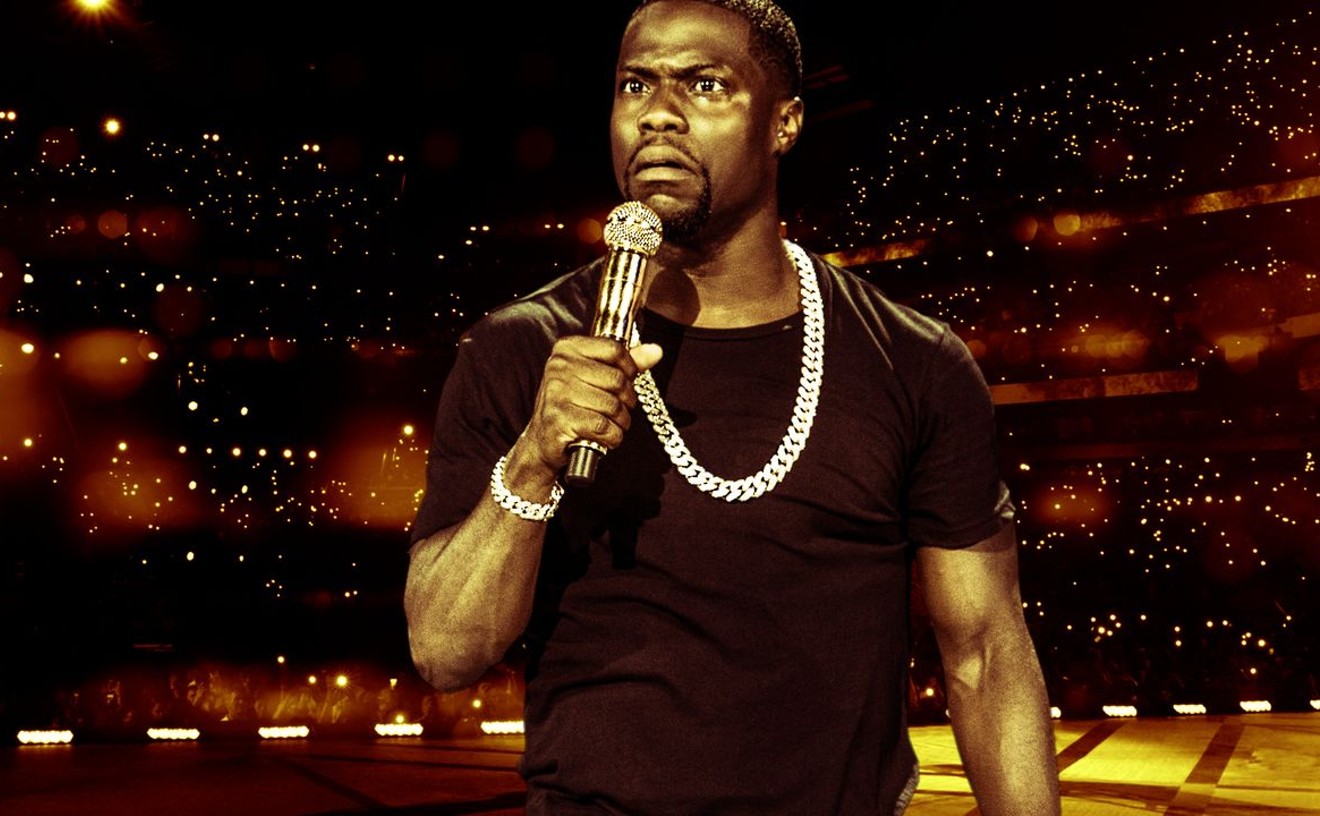A former contestant on America's Got Talent, the Minnesota native has been doing magic since he was not quite a teenager, when he was initially motivated by a David Copperfield live show. In advance of two appearances at Theatre of Dreams in Castle Rock this weekend, Sperry talked with Westword about a clown that helped him get into the business and how ten years after viewing the cult classic Reservoir Dogs, it inspired his famous "Lifesaver trick."
See also: - Five Denver/Boulder kitchen magicians who should audition for Top Chef Season 10 - Explore the dark world of Mad Tatters at their show, Circus: Suspended Release - Western-fetish enthusiasts excited by historic Denver events: Kenny Be's Yard Arteology
Westword: You describe yourself as an "anti-conjuror." What does that mean, exactly? Dan Sperry: Anti-conjuror was a word that I made up as a joke, originally. Then it actually came to be useful later on -- some of the venues I would work a lot in L.A. and New York were nightclubs. I would be opening for bands, and if I were to be billed as a magician, they would eat me alive -- you know, they would be tuned out. It wouldn't matter what I was going to do, they didn't care. Magic has gotten to be stereotyped as sort of hokey.
So it was a word that I ended up using to bill myself and describe what I do by being the "anti-magic" or exact opposite of (the stereotype) -- no sequins or rabbits. It helped me to fly in under the radar. Anti-conjuror sort of perpetuated as a title, and I've kind of stuck with it.
Opening for bands definitely doesn't sound like a stereotypical magician's gig.
I would do a lot of nightclub shows and working with bands and DJs, or work with alternative venues where magic was never presented before. The demographic of the audience that I was going to be performing for was not maybe as welcoming when they heard there was a magician opening.
You say that seeing David Copperfield at a young age inspired you to try your hand at magic. Who or what else inspires the work that you do?
It's a culmination -- not just seeing someone perform like Copperfield but, in general, seeing theater and seeing movies. A medium (like magic) evokes the feelings that you get in a movie or at a theater production or a concert or whatever it may be that you're drawn to.
Some psychological things like my Peter Pan complex -- I just really don't want to grow up. I don't want to be an adult; I don't want to have to get a "real job." Magic lets me have this perpetual, therapeutic, endless possibilities outlook.
There are no rules with magic.
I'm guessing there's no formal schooling or training to be a magician. How did you decide you wanted to become one?
There are a lot of steps to get there. I grew up in rural Minnesota. I'm kind of the last generation that can remember when there was no Internet -- so there was no Wikipedia, there was no YouTube. There was no source that I could instantly learn from. I had to use the library and bookstores and try to track down some magic shops in Minneapolis. It was pretty much a self trial-and--error sort of thing -- starting out doing birthdays and school assemblies.
In a way, I almost think it was a better way to do it -- not to sound clichéd, but it was a real hard-knocks way of learning, because I wasn't instantly exposed. I had to figure out a lot of stuff on my own.
Considering you got into magic because you didn't want to be an adult, you had to be pretty grown up to pursue a career with no given path. I was probably the only twelve-year-old I knew who had a Yellow Page ad. Yeah, I had to figure out how Yellow Page ads worked, what do I put in an ad that makes it effective? Newspaper ads, everything. I had to figure it out. I started working when I was about ten -- I would do little shows around town and mainly for friends and family if they were having a reunion or that kind of thing. They would ask my parents if I could come over and show some magic tricks and maybe I'd get five bucks.
My first real show that I distinctly remember getting a check for was when I was eleven or twelve. I filled in for a clown -- there was a clown who did shows in the area and he really helped me out. I would get the shows that he either didn't want to do or couldn't do. It was like doing four hours of twisting balloon animals and doing little magic tricks at a company picnic.
I only knew how to make, like, two balloon animals that he had taught me to get through the gig -- and because he was a clown, I had to dress up like a clown. That's what they wanted. I had no clown experience, no clown name, not even a clown voice. It was just a really disturbing thing that was four hours in a humid and hot Minnesota summer outdoors. I got like twenty-five bucks for four hours of dried finger-twisting balloons.
That was the first real show and I remember thinking, I made it! Or something. (Laughs) Now, looking back on it, I'm like, what in the hell was I thinking?











